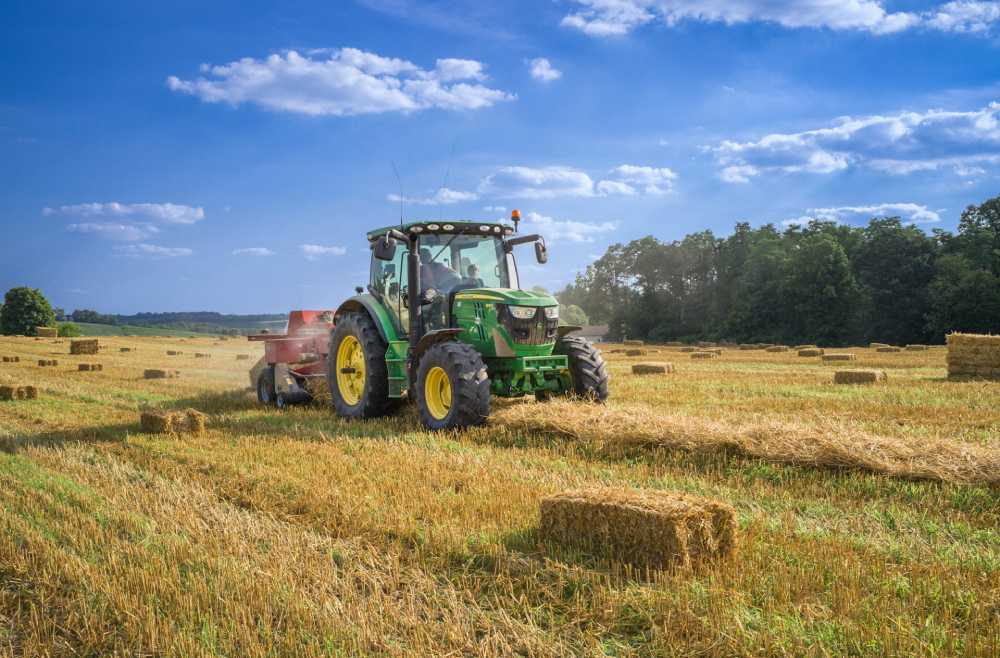Exploring the Evolution and Impact of Agricultural Tractors
The advent of the tractor revolutionized the agricultural industry at a profound level. These machines have become the backbone of modern farming, transitioning from steam-powered behemoths to the sleek, multifunctional equipment we see today.
Replacing traditional manual labor and animal power, their introduction led to an enormous leap in productivity. As agriculture continues to evolve, finding the right tractors for sale becomes integral for farmers to maintain and enhance their operations efficiently.
The impact of tractors extends beyond the fields, influencing rural communities’ social and economic frameworks. Mechanization has paved the way for larger-scale operations, a change not without its challenges and transformations. Modern tractors have become so vital to farming that they often symbolize the agricultural industry, highlighting how ingrained they are in the rural landscape.
Advancements in Tractor Technology
Tractors have undergone significant technological evolution to meet the ever-increasing demands of modern agriculture. With a focus on precision farming, tractors now have technology that facilitates exact planting, fertilizing, and watering schedules, optimizing crop yields and reducing waste.
Manufacturers have introduced features such as GPS navigation, automatic steering, and remote monitoring, boosting operational productivity and accuracy.
The Economic Significance of Tractors in Agriculture
Tractors are one of the most significant financial investments a farmer will make, often determining the scale and scope of their operation. Capable of performing multiple tasks that otherwise require significant labor and time, modern tractors are indispensable for increasing the productivity of farmland.
This translates to higher yields and aids in efficiently utilizing resources, leading to decreased costs in the long run. The economic benefits of tractors percolate through the agricultural value chain, highlighting their essential role in the industry’s overall prosperity.
Environmental Considerations and Sustainable Practices
While tractors are vital for farming, their environmental impact is a growing concern. Emissions from diesel engine tractors contribute to the overall carbon footprint of the agricultural sector. Reacting to this, advancements such as fuel-efficient engines, hybrid systems, and fully electric models have emerged.
These innovations aim to decrease the environmental toll while maintaining the functional benefits tractors provide. Proper tractor management, such as adhering to recommended maintenance schedules, also reduces their environmental impact, making sustainable farming a more achievable goal for the industry.
The Future of Farming: Autonomous and Smart Tractors
The future of agricultural tractors leans heavily towards automation and smart technology. Autonomous tractors, equipped with advanced sensors and AI, can perform tasks with minimal human oversight, thus lowering labor costs and optimizing resource use. These machines have the potential to work longer hours, navigate fields with precision, and perform tasks more accurately than ever before.
Choosing the Right Tractor for Your Farm
Selecting the ideal tractor can be an overwhelming task with the array of options available. Farms vary greatly in size, geography, and the type of crops cultivated, influencing the type of tractor that would best suit a farmer’s needs.
Considerations such as horsepower, transmission type, and the availability of compatible attachments are critically important. Moreover, the tractor’s overall reliability and potential resale value should factor into the decision, ensuring that the investment is sound for years to come.
Safety Measures and Training for Tractor Operators
With the increased sophistication of modern tractors, the need for detailed operator training and stringent safety standards has never been higher. Accidents involving tractors can be severe, making it critical that anyone operating these machines is well-versed in the best safety practices.
This includes thoroughly understanding the tractor’s capabilities, maintenance needs, and safety features. A focused investment in training can prevent mishaps and ensure that operations run smoothly and safely.
The Global Tractor Market: Trends and Analysis
Various factors, including economic conditions, technological advancements, and government policies, influence the global tractor demand. Shifts in the global economy can affect agriculture in disparate regions differently, impacting tractor sales and market growth.
The push for sustainable agricultural practices is also steering manufacturers toward developing more environmentally-friendly machines. Understanding these trends is essential for industry stakeholders to navigate the market strategically and make informed decisions.
How Tractors Have Transformed Farming Practices
Examining real-life applications showcases the transformative power of tractors. Successful adaptation of tractor technology has seen small family operations grow into productive enterprises while commercial farms have achieved new heights in efficiency and output.
These case studies present tangible evidence of the importance of tractors in agricultural advancement and the benefits of continual investment in farm machinery.
Conclusion: The Integral Role of Tractors Moving Forward
In conclusion, tractors have been central to the agricultural industry’s progression and will continue to be indispensable in the face of emerging challenges. Innovative tractor technologies promise to further shape farming into a more efficient, sustainable, and profitable venture.
As global food demands rise and environmental concerns intensify, the agricultural sector must embrace the tractor’s evolving role in fostering a future of fruitful and responsible farming practices.




